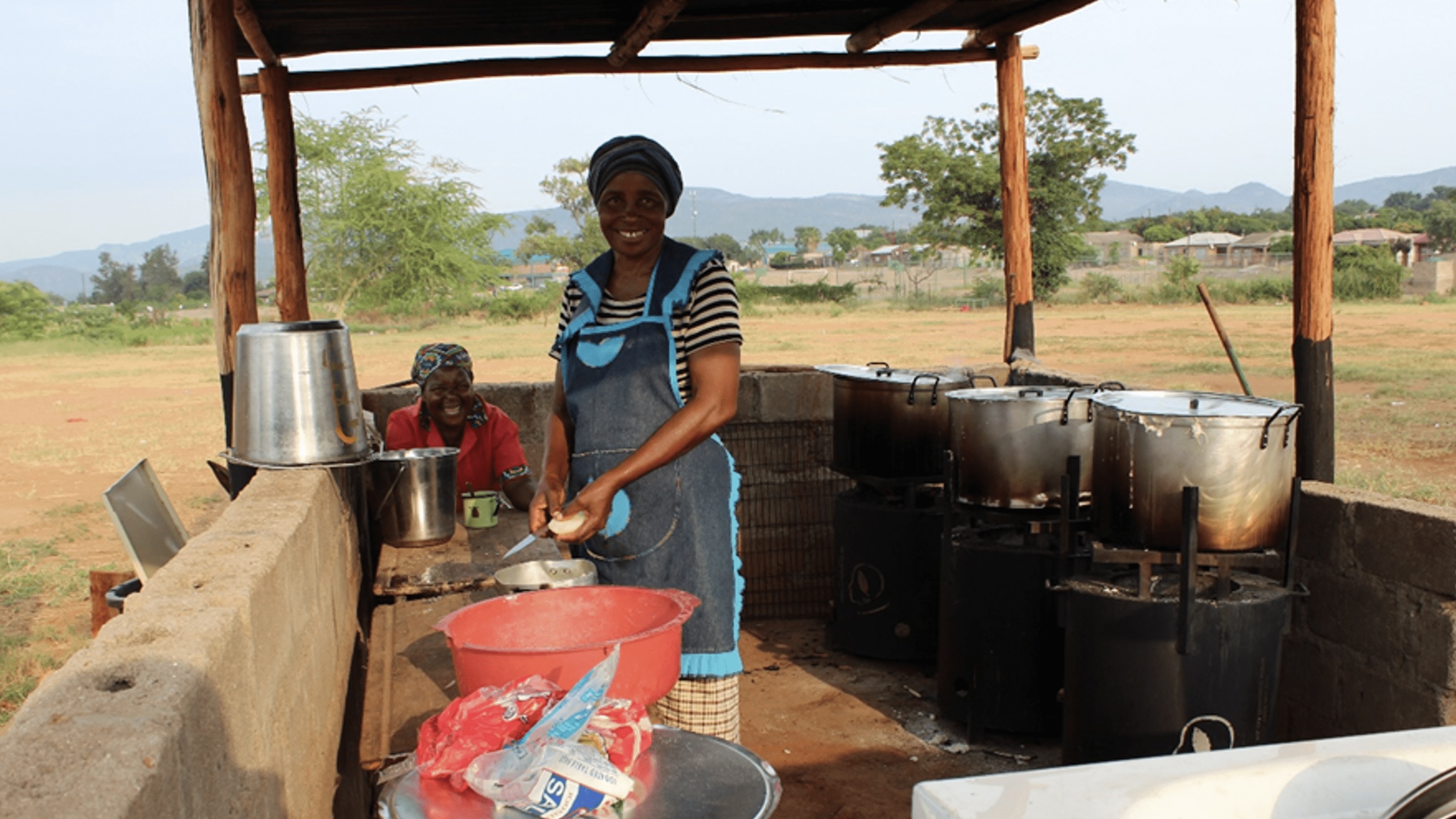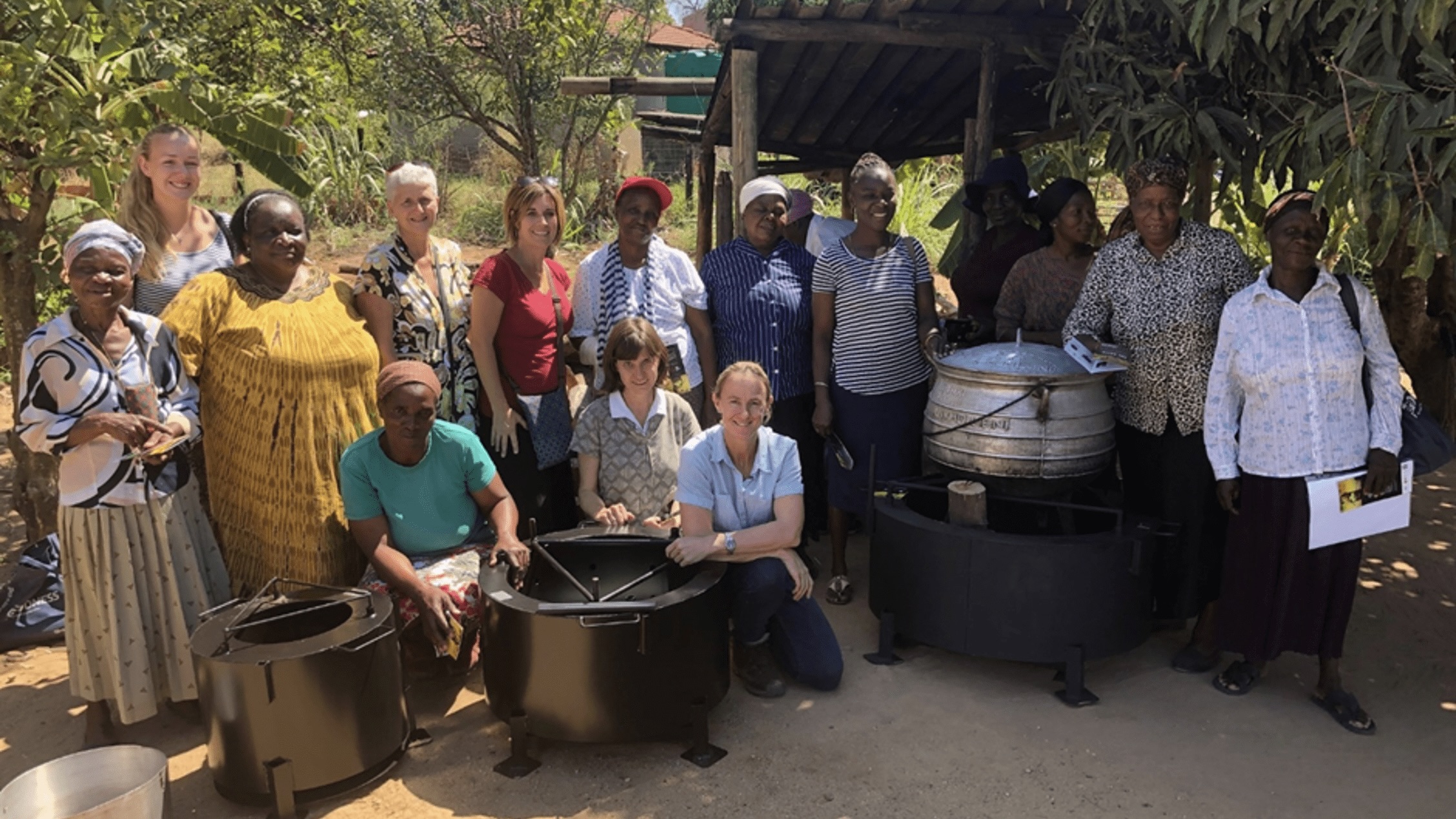

“We must be bold”: Women’s Empowerment and Cleantech Innovation in South Africa, the story of Louise Williamson
31 August 2022 Anna Tutner

[...We are women from every part of South Africa. We are women of every race, we come from cities and towns. We shall not rest until we have won fundamental rights of freedom, justice and security…]
These words are part of the petition by 20,000 women of South Africa who joined the historic march on 9 August 1956 in Pretoria to fight against oppression. Since 1994, August has been celebrated as Women's Month in South Africa to highlight women’s achievements and address persistent challenges. This year's Women's Month theme is "Women's Socio-Economic Rights and Empowerment: Building Back Better for Women's Improved Resilience", focusing on the development across all sectors, including energy efficiency.
According to the IEA Global Conference on Energy Efficiency 2022 Report, there is a need for urgent action on energy efficiency to ensure the transition to net zero emissions by 2050. Without engaging women in the development of energy-efficient solutions, this transition will take much more time and resources.
In line with UNIDO’s commitments toward gender equality and women’s empowerment, the Global Cleantech Innovation Programme (GCIP) promotes energy efficiency as one of its key focus areas and supports women in cleantech innovation and entrepreneurship, creating a wide network of inspiring women professionals in the industry. GCIP originated in South Africa back in 2011 from the pilot Cleantech Innovation Competition, and has been present there until today. In the context of the 2022 Women's Month, let us celebrate the women of South Africa through the success story of Louise Williamson, a 2016 GCIP South Africa alumna and founder of the Sustainability Professionals company.
Louise Williamson is a cleantech innovator, entrepreneur and women’s rights advocate, who promotes climate action and challenges the stereotypes related to women in Science, Technology, Engineering and Mathematics (STEM). Williamson developed a fuel-efficient Mashesha stove technology, providing easy-to-use, clean and efficient equipment for the cooking needs of rural schools and communities.
More than 50% of rural schools in South Africa still rely on open-fire stoves which use a lot of wood and produce a considerable amount of smoke, leading to health issues and air pollution. Mashesha stoves use half the fuel compared to open fire and emit less smoke. At the same time, they also halve the cooking time, which speaks for the name “Mashesha”, translated from Siswati as “quick cooking”. Willamson’s innovation is based on pre-existing equipment, upgraded to become cleaner and more efficient.
“You do not have to build new infrastructure and buy new pots, you are just taking a mild [low-carbon] steel product, giving it to people in the same way that they were cooking before, except that now it is cleaner, neater, healthier and environmentally friendlier,” explains Williamson. “It is innovative in the sense that it is for mass cooking, and Mashesha is using the existing context, avoiding to make things more complicated”. Mashesha stoves scale up the provision of a cleaner, safer, more efficient and environmentally more conscious way of cooking, making Williamson and Sustainability Professionals pioneers in South Africa in solving social, environmental and economic issues.
Williamson's journey started back in 2016 when she participated in GCIP South Africa. At that time, she was still a newcomer in the business world, with nothing but an innovative idea by her side. “I attended an exhibition where GCIP participated and presented my innovation,” recalls Williamson. “The GCIP team encouraged me to apply for the accelerator. This was my first exposure to business skills and learning on how to start a company. It is because of GCIP that I started the [Sustainability Professionals] company”. The cleantech innovation focus and the community of like-minded people of GCIP immediately drew Williamson’s attention.
The most exciting aspect of working with GCIP for Williamson involved meeting like-minded cleantech entrepreneurs, coming from a variety of fields, and being able to gain international exposure. “It was extremely exciting that there were so many entrepreneurs from diverse cultures in the same boat. We all just became a wonderful cohort of people wanting to do the same thing and striving for positive change,” remembers Williamson of her experience.
GCIP is the starting point for cleantech newcomers to get engaged internationally and become successful, and that was Williamson’s case as well. Because of the GCIP affiliation with the Technology Innovation Agency (TIA) of South Africa, she got a chance to present her Mashesha stove in Switzerland and pitch in a competition there. “The [GCIP] programme creates a platform for linking South African entrepreneurs, especially youth and women, with local and global investors, business and commercial partners, potentially resulting in the commercialization of new products and services and, ultimately, job creation,” reiterates Senisha Moonsamy, Head of GCIP South Africa.

Since Williamson sees GCIP as a community of inspiring and ready-to-help people, she advises the same to new participants: “You are not competing with the other entrepreneurs for your business. Speak to the other entrepreneurs in your group and help each other because they are thinking in the same way as you are. Take the [first] step, be bold, speak with each other and [offer] help”.
Mashesha stoves have an enormous impact on the environment: with many schools in South Africa now using them, the stoves reduce carbon dioxide, methane and nitrogen oxide emissions, which contributes to climate change mitigation. Apart from that, Williamson and Sustainability Professionals are very engaged in the social and economic empowerment of women. Williamson’s entrepreneurial spirit and mindset are committed to improving health and working conditions for women.
Williamson also advocates for women in science, technology and innovation, calling for decisive action on women empowerment for policy changes and a shift in society’s perceptions. As a woman and a dedicated cleantech entrepreneur, Williamson is proud to work in this area. She has always been inspired by the human ability to find answers to problems and had a curiosity about nature-based solutions.

Growing up in South Africa, Williamson witnessed that often women did not have the same rights and privileges as men. However, it was Williamson’s father, who believed that women could achieve anything. “My father taught me how to fish, to build stuff and to become an independent woman,” remembers Williamson.
Encouraged by his words, she strongly supports women to pursue their careers in various fields, including cleantech entrepreneurship: “I am inspired by helping women to know that they can do just the same work a man can do. There should be no separation, there should be equality”.
Williamson hopes GCIP could be a catalyst in identifying policy gaps, helping to create more enabling ecosystems for small cleantech entrepreneurs and improve market and investment access. “The funding pool has shrunk hugely because of COVID implications. South Africa does not have enough supplier development initiatives to support locally made products. We have to support small entrepreneurs with market access,” says Williamson.
Throughout her growth, professional career and personal journey with Mashesha and GCIP, Louise Williamson has proven her resolve and strength. What makes Williamson special are her hopes and long-term vision. “My goal [idea] is to have the Mashesha stove certified as a carbon offset project. Once that is done, I am planning to sell my IP to the upcoming entrepreneurs across Africa, to take it forward,” shares Williamson her plans. “My long-term vision is [to have] carbon offset certifications and then to design the ‘business in a box’ toolkit so that entrepreneurs can purchase the whole toolkit from me, replicate it in their country of choice and innovate further should they wish to”. Most importantly, Williamson wants to use this scheme to support emerging entrepreneurs in South Africa and beyond to get their businesses up and running.
Williamson is an energetic and inspiring woman who actively advocates for the status and support of women-led cleantech businesses to address climate issues. She fully commits to her passion and passes on this attitude not only to young entrepreneurs but to all women in South Africa and worldwide, including through her participation in the Women in Clean Cooking Mentorship Program in collaboration with the Clean Cooking Alliance (CCA), Sustainable Energy for All (SEforALL) and the Global Women’s Network for the Energy Transition (GWNET). Williamson encourages women to put aside their fears and insecurities and start businesses to advance technological progress and break down gender stereotypes.
“The time has come for women to step up now, and we must be bold. There are platforms, forums and networks that are there to support you,” says Louise Williamson. “There is a big movement internationally for women in energy spaces, and they want women to be in there”.
If you would like to partner with Louise Williamson or find out more about the business opportunities proposed by the Sustainability Professionals, please, contact her here.
Contact GCIP
Follow GCIP on Twitter (@GCIPsmes) or LinkedIn (UNIDO Global Cleantech Innovation Programme)
For more information, please, contact:
Olga Rataj, GCIP Programme Manager
Gerswynn Mckuur, GCIP Global Coordinator
Alois Posekufa Mhlanga, Climate Technology and Innovation Division Chief